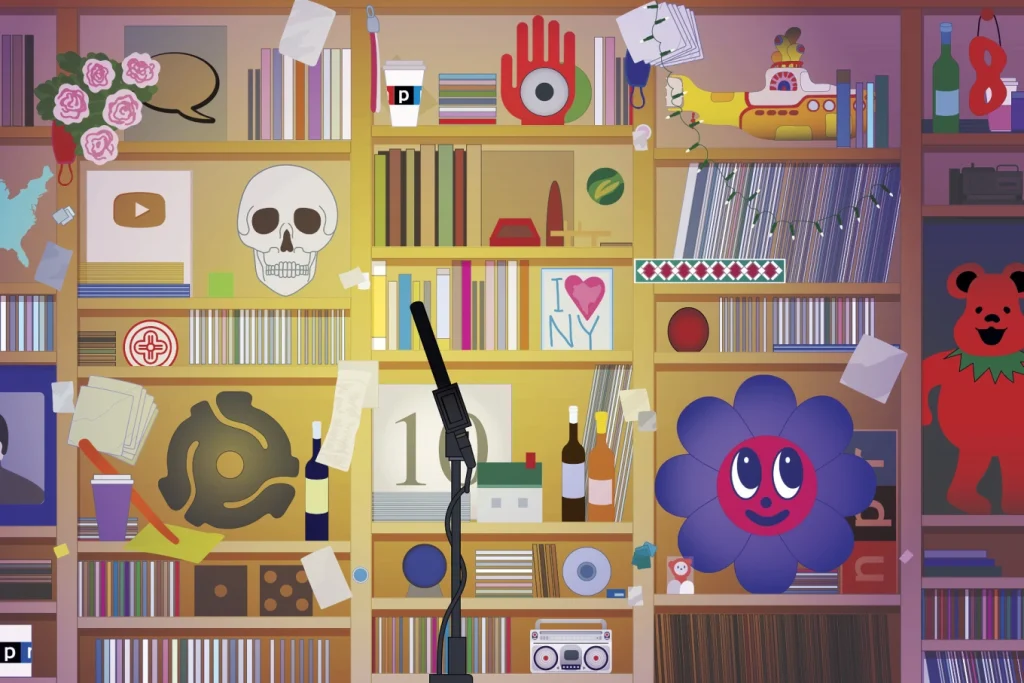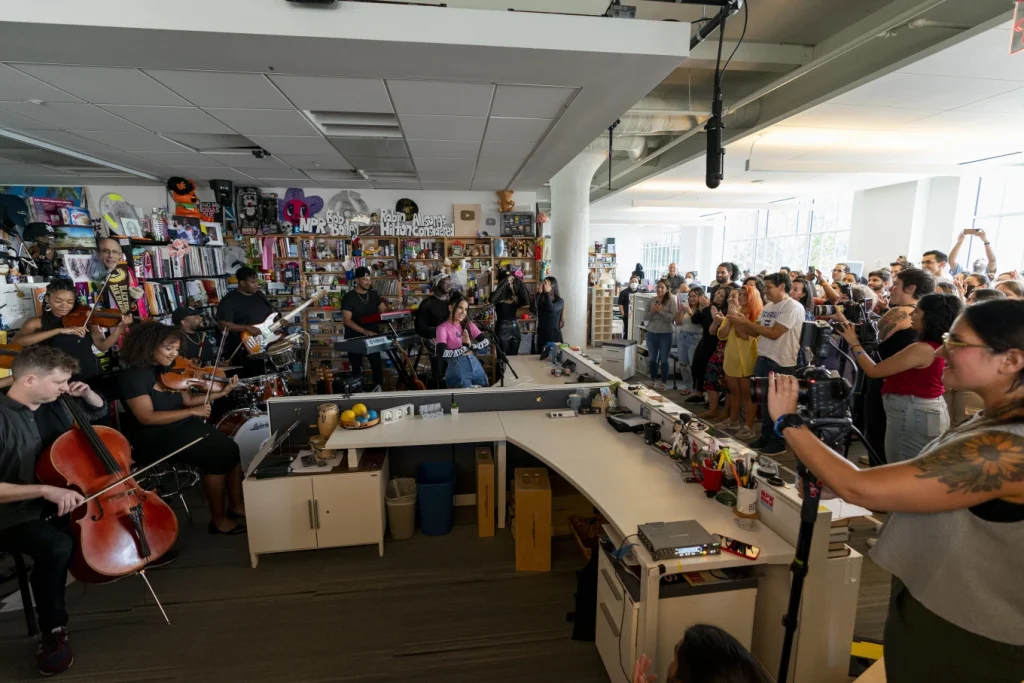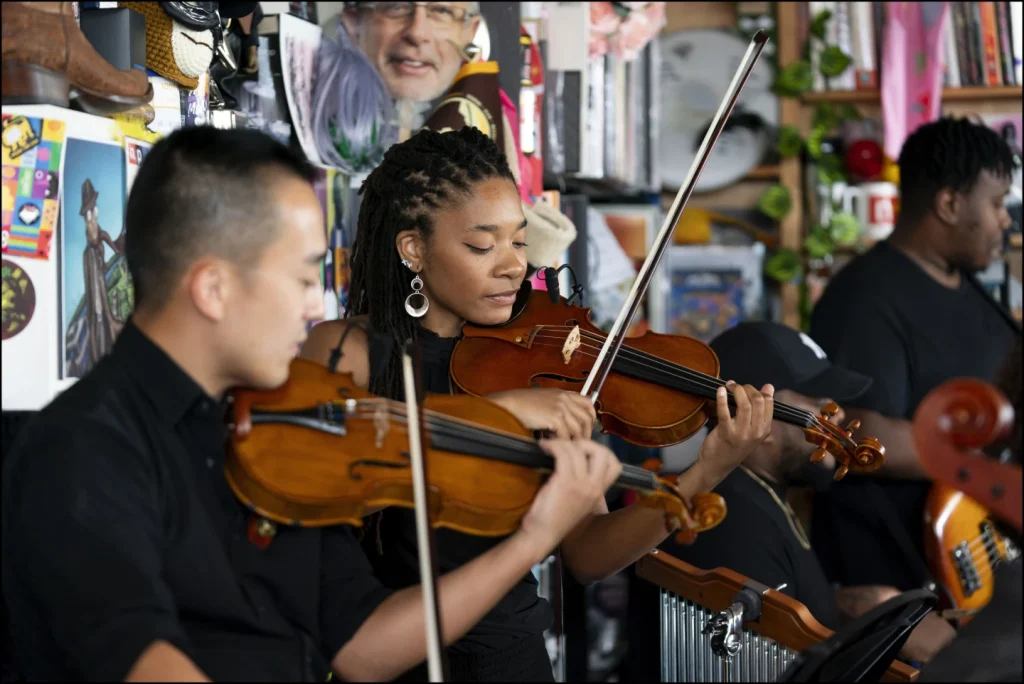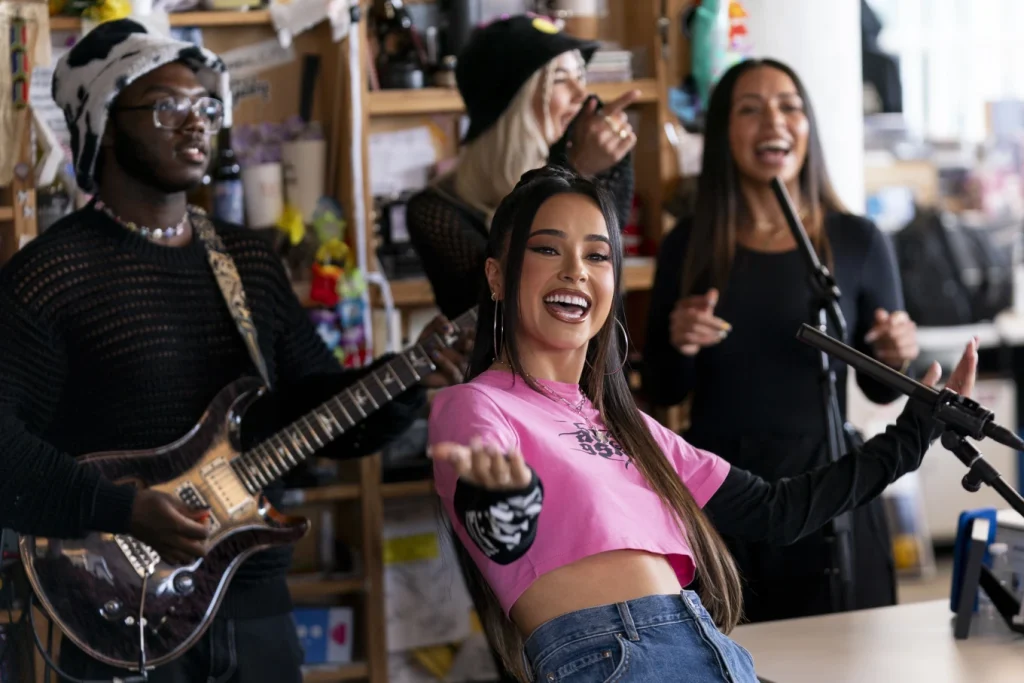The fusion of music and storytelling has long been a hallmark of human expression. From the earliest chants around communal fires to today’s digital streaming platforms, music has served as a conduit for human emotion, culture, and history.
In the modern era, the NPR Tiny Desk Concert series has emerged as a testament to the power of intimate, live performances, providing a platform for artists across genres to connect with audiences in a unique and personal way.
The recent Tiny Desk Concert featuring Juvenile, the legendary rapper from New Orleans, serves as a testament to the series’ growing influence and reach.
As the infectious beats of DJ Mannie Fresh and Juvenile’s playful demeanor filled the office space, it became clear that this was more than just another performance.
Juvenile’s initial unawareness of the series, followed by his enthusiastic participation and subsequent viral success, highlights the impact of NPR’s Tiny Desk Concerts in the music industry.
The series, which originated as a platform primarily for rock and folk musicians, has since evolved into a diverse showcase of talent from across the musical spectrum.
Becky G, a 26-year-old Latina star, reflected on her experience, emphasizing the significance of her appearance as a milestone in her career.
Her sentiment echoes the broader impact of the Tiny Desk Concert series, which has become a marker of an artist’s journey and growth.
The genesis of the Tiny Desk Concert series traces back to a pivotal moment at the 2008 South by Southwest festival in Austin, Texas.
Folk artist Laura Gibson, disheartened by a lackluster performance, caught the attention of Bob Boilen and Stephen Thompson, who sought to provide her with the platform she deserved.
This act of empathy and support led to the creation of the Tiny Desk Concert series, as Gibson’s performance was filmed and uploaded to NPR’s website.
The series’ humble beginnings underscore the power of spontaneous inspiration and the transformative potential of a single act of kindness.

Bob Boilen, a key figure in the series’ inception, reflected on the organic nature of its evolution, emphasizing the role of inspiration and intuition in creating something truly impactful.
The Tiny Desk Concert series has transcended its origins to become a cultural touchstone, offering a space for artists to connect with audiences in an intimate and authentic manner.
The series’ growth and diversification reflect the ever-changing landscape of music and its ability to unite people across boundaries of genre, language, and culture.
In conclusion, the NPR Tiny Desk Concert series stands as a testament to the enduring power of live music and the human connection it fosters.
From Juvenile’s infectious energy to Becky G’s reflective milestone, the series continues to provide artists with a platform to share their stories and connect with audiences in a meaningful way.
As the series evolves and expands, it remains a beacon of creativity, authenticity, and the transformative potential of music in our lives.
In the vast landscape of music, where artists of all genres, both famous and obscure, vie for recognition, NPR’s Tiny Desk concert series has emerged as a unique platform.
Each week, the Tiny Desk producers sift through a deluge of pitch emails from artists, both international and domestic, monitoring social media in the process.
Notably, the performances are purely promotional, with no compensation for the artists’ travel or appearances.
The rules are straightforward: no equipment that amplifies sound or voice is allowed, and all performers, regardless of number, must fit behind what was once Bob Boilen’s functioning desk.
One of the series’ defining features is the collaborative process between musicians and producers for the setlist. Notable musicians, such as Josephine Wiggs of “The Breeders,” have spoken about the challenge of adapting their performances to the intimate setting of the Tiny Desk concerts.
With over 1,100 tapings, Tiny Desk has drawn comparisons to MTV’s “Unplugged” series from the ’90s, but it stands apart as a true office space rather than a recording studio or soundstage.
The performances, averaging 20 minutes, are partially guided by online engagement statistics and are played to NPR staff.
The turning point for Tiny Desk came when renowned entertainer Tom Jones expressed interest in performing in 2009.
However, it was the booking of T-Pain, the chart-topping rapper-singer, by then-producer Frannie Kelley that truly catapulted the series to prominence.
T-Pain’s memorable performance, shedding his signature Auto-Tune sound, marked a pivotal moment for Tiny Desk, propelling it into the viral spotlight.
This surge in popularity was a revelation for the NPR team, as producer Bobby Carter noted, “It was the first time we’d ever gone viral.”

The inclusion of a rapper like T-Pain not only expanded the diversity of the Tiny Desk lineup but also signaled a departure from the series’ early days, where the artists booked reflected the musical preferences of the Tiny Desk team.
Carter, reflecting on the series’ evolution, emphasized the importance of diversity and inclusivity, recognizing the need to address the voids in representation.
Tiny Desk’s success can be attributed to a combination of factors, including the timing of its emergence in the online live music video landscape, expert musical curation, and the recognizable backdrop of cluttered shelves.
However, the primary draw for mainstream artists lies in the challenge of performing within the series’ unique restrictions.
Bob Boilen, one of the series’ creators, highlighted the intimacy of the performances, stating, “People in the room are hearing that voice naked.” This intimacy, while nerve-wracking for artists, offers audiences a fresh perspective on their favorite musicians.
Beyond its appeal to established artists, Tiny Desk has also been a springboard for relatively unknown musicians, offering them career-changing exposure. The series’ ability to provide a platform for emerging talent underscores its significance in the music industry.

In conclusion, NPR’s Tiny Desk concert series has evolved from a modest niche to a cultural phenomenon, embracing diversity and challenging artists to perform in a stripped-down, intimate setting.
Its impact on both established and emerging musicians underscores its enduring relevance in the ever-changing landscape of music.
